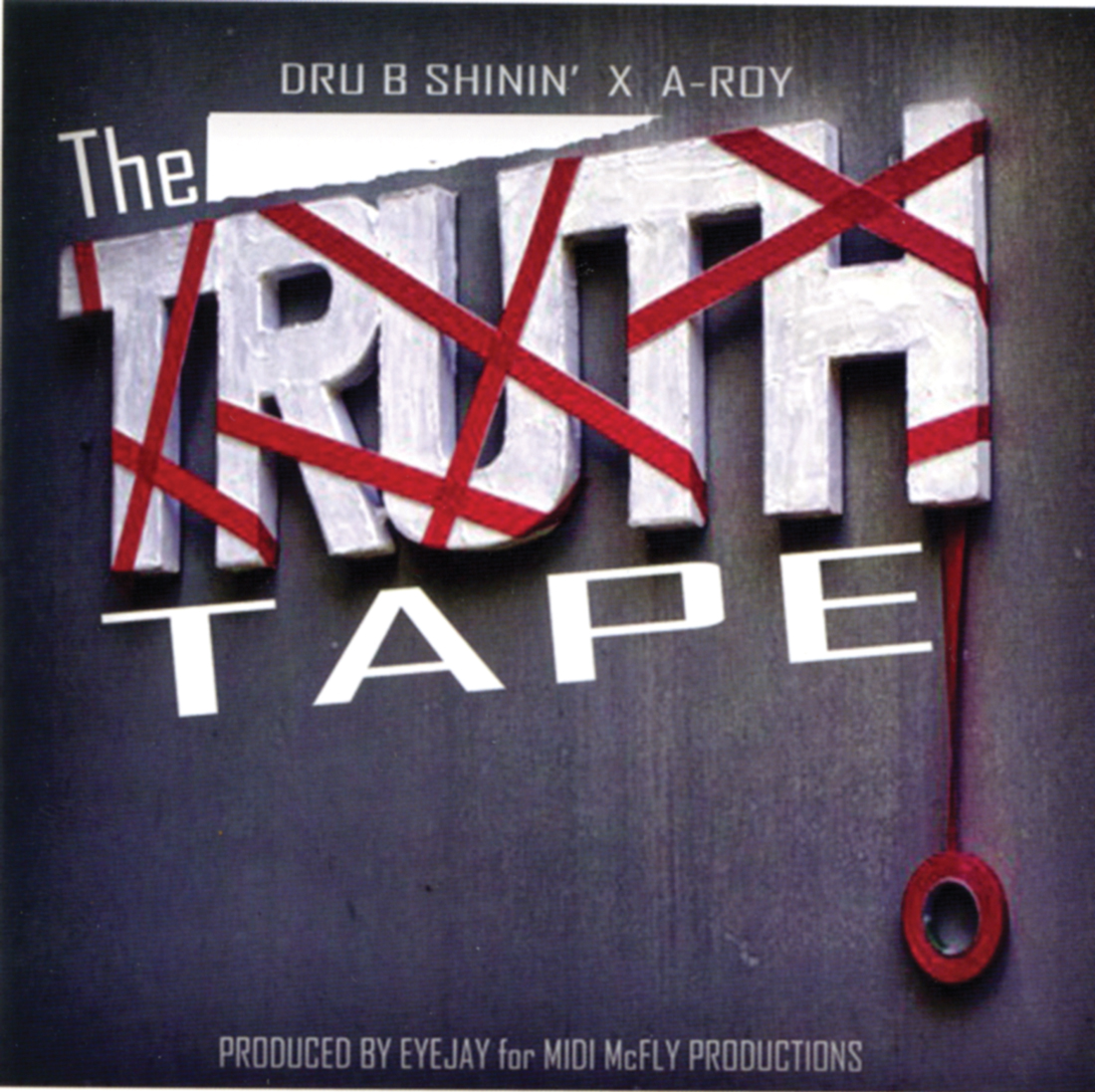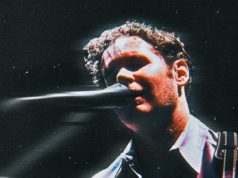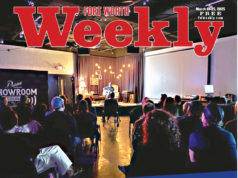How refreshing it was to see Dru B Shinin’ come onto the scene a few years ago. Here was this young, hungry rapper with an interesting backstory and a TCU diploma, pumping out songs and albums seemingly nonstop and also –– to “keep it real” –– performing frequently with a backing band. If not for the Rivercrest Yacht Club, an incredibly popular (and deservedly so) Beastie Boys-esque rap/funk outfit, Dru easily would have won a couple of Music Awards over the years.
The young Korean-American wordsmith has kept on performing and producing, getting better seemingly at every step along the way. Over the past few months alone, he’s put out a solo album (All American) and, with fellow Fort Worth rapper A-Roy, a spellbinding collaboration. The Truth Tape is full of badass beats and instrumental melodies, courtesy of producer Eye Jay. A few songs are built around old-school R&B samples that he’s rendered nearly unidentifiable by cutting and funking them up (The Jackson 5’s “I Saw Mommy Kissing Santa Claus,” Diana Ross’ “Reach Out and Touch [Somebody’s Hand],” The Commodores’ “Sail On”).
The album also doesn’t lack for crisp, authoritative flow. Not only can Dru and A-Roy rhyme, but they also can elucidate strong themes –– boasting and toasting rule, but rapping about the daily grind, about trying to achieve success through art, is another strong element. “I don’t be up in the pen,” Dru raps on “Pen & Pad, “I don’t be up in the pad / I be in the streets, slangin’ bags / Hope I never see the pen in life / Hope I see the pad tonight / Been the square-smoking, jeans-sagging type since my early days / Analyze the world, and I learned its ways / Even back then I knew dirt it pays / So even back then I was serving thangs purple haze.”
However, profanity and violence are never far behind. The pronounced grittiness is in no way gratuitous, meaning that it never gets in the way of the melodies and beats, but it is there. A week or two ago, I wrote that most local rappers –– “local” meaning “not with a quarter of Jay-Z’s budget” –– are gangsta-oriented, rapping about violence and “niggas” over intentionally lo-fi beats. Some do it well. Most do not. Dru and A-Roy fall into the former category. True, the beats on The Truth Tape are the opposite of lo-fi (they sound like a million bucks), but both rappers are always completely believable and alarmingly creative. But this is 2013, not 1983. As the RYC, Nice Major, Kyeyote, and a few other local rap/R&B artists have proved, you don’t have to use racial and sexual epithets in every other song or violently threaten the competition in every other verse for your music to qualify as legitimate rap/R&B –– do we really need to keep saying “nigga” and “ho” and broadcasting violent threats?
“I think the language in hip-hop culture is definitely used to remain relevant,” Dru said, adding that “cussing” is tantamount to a form of branding: identity through the commodity of language. “It seems superficial, but fitting in is part of every culture, especially music culture.” (Dru has never used “nigga” in any of his raps.)
A-Roy sees profanity as necessary for authenticity’s sake. “Though I curse and use the n-word in some of my songs, I do so sparingly on purpose,” he added.
Constantly struggling to maintain some form of balance is just part of his daily routine as an artist, he said. “I try to make sure my language doesn’t offend to the point where no one else would have a chance to enjoy it. So for me it’s a balancing act for the sake of being true to myself just as much as for the benefit of listeners.”
The derogatory terms are part of what most rappers hear at home and on the street, Dru said. The negativity bleeds into the music. A song, he said, “is somewhat like we’re at home having a private conversation. I’m not saying that … hurtful language is to be condoned in music, just that it is used in the daily conversations of the people who listen to hip-hop.”
It’s “hard to know,” he said, whether or not the carriage is pulling the horse.
“It does seem stupid that we use [profanity] in our music and even more in our everyday lives,” Dru said. “It is a role rappers are compelled to fit into, and I do believe most of the times rappers tailor their music to be accepted” but no more than so than they tailor their speech to be accepted in their everyday lives.
Is violence as much a part of hip-hop as tears in beers are to the C&W singer or Satan to the metalhead? “I just think that [profanity and violence are] products of the environment that hip-hop was born in,” the harrowing Bronx projects of the late 1970s, Dru said. “You have to be somewhat tough. I mean, even Q-Tip of [A Tribe Called Quest] was involved in beefs.”
A change toward a kind of rap whose practitioners are reluctant to tailor their rhymes for the sake of “authenticity” is already happening, A-Roy said. “It’s because hip-hop’s influence has expanded so much. To me the spirit of hip-hop is basically about embracing individuality and freedom, so anyone who can do that with a certain level of skill and respect for the culture’s roots can essentially rap about whatever they want, and someone will identify.”
Will hip-hop ever be rid of violence and profanity? A-Roy isn’t sure, but “there are other [lyrical, musical] flavors that have a presence, too, and are growing,” which is a recent development. “If you asked Dru or me this same question 10 years ago,” A-Roy said, “our answers may have been different.”












